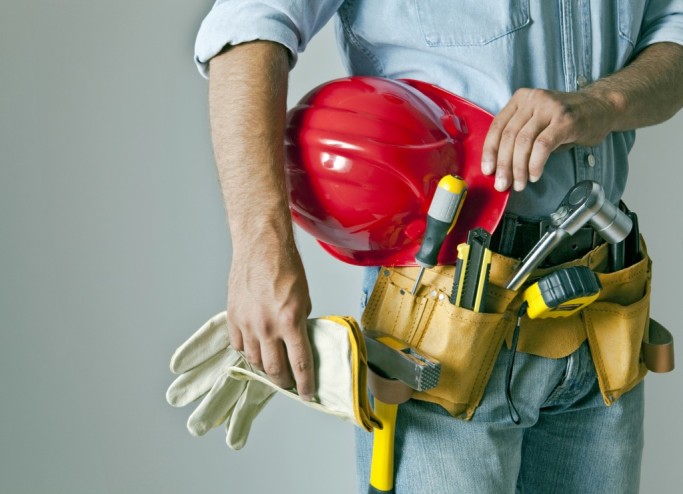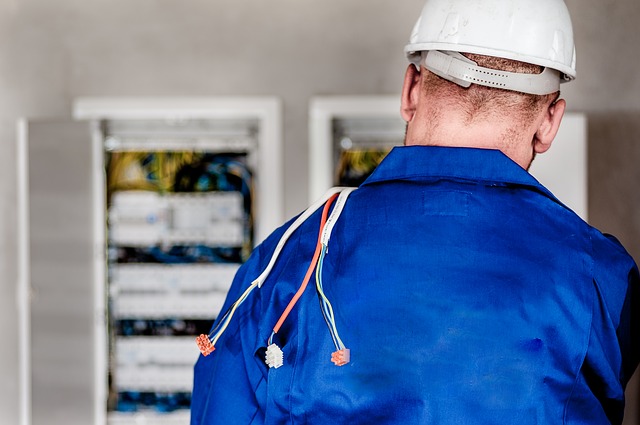Home Warranty > Plan Features Comparison Shopping
What’s What: How Home Service Contractors Get Certified

The home warranty sector and its sub-parts come with all sorts of descriptors. Wading through the vocabulary of home service contracts themselves can be one thing, but dissecting the lingo of what’s most important when it comes to home service contractors and how they are – or are not – certified is another.
Homeowners often have questions, like:
- What is the difference between registered contractors and licensed contractors?
- What are the benefits of finding technicians through a home warranty company network?
- Who can I really trust to do work on my home?
Where to Start: Know Your State Lines
Not all contracting certifications are the same, and there’s a lot of variation from state to state.
State licensing and registration for contractor certifications differ depending on the type of contractor and service and depending on where the work will be performed. Individual state regulations are implemented and governed at the local level; it’s each state’s way of overseeing the work that home service contract companies – and their contractors – provide within their borders.
The State Licensing Standards Guide from CompareHomeWarrantyQuotes.com explains, “Licensing requires a company to meet designated criteria. Sometimes there are competency exams or certifications that must be passed and obtained before being authorized to do business in a given state. Registration, on the other hand, typically includes completing a form and paying a fee, but it does not guarantee a level of competency or that certain standards have been met.”
A similar thing happens when someone moves to a new state. The new resident will have to check in with the department of motor vehicles in order to obtain a new driver’s license. This may include re-passing a vision exam, written test, and road signs test to ensure the new resident is driver-ready. Registering a car is completely different, and generally includes sending in forms, like a copy of a driver’s license, proof of insurance, and the vehicle’s title in order to be compliant.
Licensing versus registration in both the case of service contractors and a new resident require very different things. Namely, licensing requires an action, and registration means paying a fee and filing forms. This is why, when possible it’s a good idea to look for licensed contractors. Typically, they have passed some kind of an exam and demonstrated a skill level that has met standard requirements for their trade. The added benefit of finding these licensed technicians through a home warranty company’s network of rated service providers is that in addition to demonstrating skill and ability, they have also proven to be reliable, friendly, and easy to work with.
Value and “Peace of Mind”
The savings of enrolling in a home warranty may appear to be the best benefit to a homeowner, but Kevin Wallach, Founder and CEO of Paradox M.(the parent company of CompareHomeWarrantyQuotes.com), says it’s not really that at all.
“The real, guaranteed value of a good home service contract is convenience, not savings. But, that convenience only comes through when a customer calls in a problem and receives attention from the home service contract provider and that provider’s contractor or employee,” said Wallach, who also administers a global Home Warranty and Home Service Contract Professionals LinkedIn group, which provides information to professionals who service the home warranty and home service contract industry.
The value of a home service contract really kicks in when consumers utilize the convenience of knowing who to call – a ‘peace of mind’ component, if you will – and knowing a certified and reliable technician will show up.
Wallach encourages consumers to do their homework beforehand, though.
“Since most of these companies rely on contractors to perform the actual work, the customer really needs to think carefully about the local, well-respected contractors who work with the company. And that’s a consideration best made before buying the service contract, not afterwards,” said Wallach.
A Decreasing But Heavily Needed Workforce of Certified Technicians
Keeping a home in working order can take any number of technicians with specialties in appliances, systems, pest control, electrical, plumbing, pools and spas – to name a few. And these technicians are crucial for home service contract companies. Each of these specialized technicians require a foundational level of education and job-specific training, but they’re becoming harder to come by.
In a recent article by the Wall Street Journal, repair technicians salaries have been on the decline, and it’s causing less people to choose it as a sustainable way of making a living.
“Of all repair workers, those who fix, install and maintain refrigerators, chain saws, televisions and assorted household goods have seen their wages fall fastest,” the article reported. “A diverse and growing group of customers are taking repairs into their own hands, watching how-to videos and ordering parts online. And when they can’t fix it themselves, they’re more likely to simply buy one of today’s relatively cheap new appliances rather than call the repair shop. Appliance prices have fallen 21 percent since 1992, even as consumer prices have risen 62.3 percent overall, Commerce Department figures show.”
All of which makes a reliable network of certified repair technicians all the more valuable to today’s homeowner.
Take for instance, electricians and plumbers. These are the steps technicians in these fields have to complete in order to join ranks with a network of providers for a home service contract company:
Electricians
Home warranty companies won’t hire just anyone to maintain electrical systems in a home. And, that’s a good thing. Installing, repairing, and maintaining electrical power systems requires specific knowledge and, consequently, excellent vision.
In addition to requiring postsecondary education, electricians must complete electrician training, electrical safety classes, and learn and adhere to building regulations, codes and standards, and electrical concepts. Qualifying scores on written and performance evaluations are required.
Typically, electricians will accrue work experience during an apprenticeship, which counts towards licensure. Licensing is required by most states, while certification within the electrical field remains optional.
To maintain an electrician license year after year, electricians are required to continue learning and amassing continuing education hours, as well as pass certain routine examinations.
Plumbers
Similar to electricians, plumbers are required to have a high school diploma or GED followed by vocational training, including mastery of water supply, drainage systems, and piping equipment, which will then lead to an apprenticeship program. Apprenticeship programs can take anywhere from 2-6 years to complete and include 2,000 hours of on-the-job training and 246 hours of classroom time. Many states require a plumber to operate with a license, although requirements vary.
Plumbers also have classifications. Those starting out as plumbers during their apprenticeship will graduate to becoming a journeyman upon completion. After two years of journeyman work, plumbers can make their way to the top certification of master plumber. This milestone (and, ultimately, leadership role) requires another exam, which includes both written and practical sections.
Contractor lingo and certification speak can be confusing, and it’s not always clear who has completed what level of skills testing to earn a homeowner’s trust. Unfortunately, this population of workers is dwindling, adding more value to those networks of reliable technicians who are certified and rated, and giving home service contract companies an additional – if not renewed – sense of purpose.


